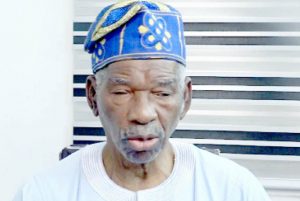Peace & Development Advisor at the United Nations Development Programme (UNDP)

The United Nations Development Programme (UNDP) is the United Nations’ global development network. It advocates for change and connects countries to knowledge, experience and resources to help people build a better life for themselves. It provides expert advice, training and grants support to developing countries, with increasing emphasis on assistance to the least developed countries. It promotes technical and investment cooperation among nations.
Headquartered in New York City, the status of UNDP is that of an executive board within the United Nations General Assembly. The UNDP is funded entirely by voluntary contributions from UN member states. The organization operates in 177 countries, where it works with local governments to meet development challenges and develop local capacity.
We are recruiting to fill the position below:
Job Title: Peace & Development Advisor
Job ID: 36570
Location: Abuja
Practice Area – Job Family: Peace Building – PEACE AND DEVELOPMENT
Grade: P5
Vacancy Type: FTA International
Posting Type: External
Bureau: Africa
Contract Duration: 1 Year with possibility for extension
Background
Peace and Development Advisors (hereafter PDA) are deployed to engage with national stakeholders to build, strengthen, and sustain nationally owned and driven efforts to prevent violent conflict and build just and peaceful societies. The range of countries to which PDAs are deployed vary considerably, with some deployed to countries emerging from conflict, others where violence is escalating, and others to countries where there is no violent conflict but underlying structural causes of conflict are present. PDAs are also deployed in countries where political and developmental challenges exist around issues related to elections and constitutional processes, exclusion and inequality, environment, climate change and natural resource management.
PDAs are deployed through a partnership between the UN Department of Political and Peacebuilding Affairs (DPPA) and the United Nations Development Programme (UNDP), under the Joint UNDP-DPPA Programme on Building National Capacities for Conflict Prevention. PDAs support Resident Coordinators (RC) and UN Country Teams (UNCTs) in their efforts to work with national partners on conflict prevention and sustaining peace. They support early warning and risk management measures, and ensure that UN assessments, frameworks (mainly UN Cooperation Frameworks), strategies and programmes are conflict-sensitive and informed by high quality analysis. They are located in the Resident Coordinators’ office, with a direct reporting line to the RC, and a secondary reporting line to the UNDP Resident Representative and DPPA-DPO regional divisions.
In 2021, PDAs will have been deployed to more than 50 countries through the Joint Programme. While most PDAs are deployed at country-level, there are a number of PDAs who cover multiple countries. In some contexts, PDAs are part of a small Peace and Development Advisory team composed of a PDA and a substantive national or international officer/analyst. PDAs also receive additional support from a Joint Programme Secretariat based at UN Headquarters in New York, from UNDP and DPPA technical advisors/specialists globally, and from a cadre of regional programme specialists supporting their regions from Amman, Addis Ababa, Bangkok, Dakar, Istanbul and Panama.
PDAs at the P5 level will be deployed in: a) particularly complex political, conflict and security settings as determined by the Joint Programme criticality assessment and analysis carried out by DPPA and UNDP, b) in contexts of UN mission/mission transition settings or with other political presences, c) when regional/sub-regional functions are required, or d) when engagement with high-level officials is expected.
Nigeria’s Context
The strategic importance of Nigeria to Africa cannot be overstated and her stability and sustained economic growth is an asset in driving the continental development agenda, especially with the coming to operation of the Africa Continental Free Trade Agreement. Peace and security are conditions sine quo non for the effective implementation of the Sustainable Developments Goals (SDGs) for without an enabling environment, the possibility of achieving the SDGs is very minimal.
Nonetheless, the country is challenged by multifaceted conflicts which have negatively impacted on its citizens’ quality of life, democratic consolidation, stability and sustainable development. Nigeria’s plural and diverse ethnic, regional, and religious character is a key defining context of her conflict dynamics. Generally, there are three broad typologies of conflict in Nigeria, namely, identity-based conflict, resource-based conflict and power-based conflict, which have diverse consequences on the country’s peace and development. Significant resources have been invested to address these violent internal conflicts given the threat it poses to the country’s cohesion and stability.
Duties and Responsibilities
- Undertake conflict analysis and provide strategic and early warning advice to the Resident Coordinator in his/her engagement with high-level government officials, academia, civil society including youth and women’s networks, UN Country Teams, HQ, and other relevant stakeholders. Submit the analysis and reporting to the RC, UNDP RR and DPPA-DPO Western Africa Division.
- Identify opportunities to build national capacities for conflict prevention including areas of strategic, programmatic and policy engagement with national stakeholders, and support the RC and the UNCT actions in areas of political analysis, conflict prevention, peacebuilding, human rights, humanitarian-development-peace (HDP) nexus, Women, Peace and Security (WPS) and Youth, Peace and Security (YPS) among others.
- Establish and strengthen strategic partnerships with key national stakeholders, regional and international actors and development partners on issues related to conflict prevention, Sustaining Peace and the 2030 Agenda for Sustainable Development.
PDAs have a primary reporting line to the Resident Coordinator, and secondary reporting lines to the DPPA-DPO regional division and the UNDP Resident Representative. Under their guidance and agreed workplan, and in close collaboration with the Country Team, the PDA will:
Undertake conflict analysis and provide strategic and early warning advice to the Resident Coordinator in his/her engagement with high-level government officials, academia, civil society including youth and women’s networks, UN Country Teams, HQ, and other relevant stakeholders. Submit the analysis and reporting to the RC, UNDP RR and DPPA-DPO Western Africa Division.
- Provide risk-informed analysis to the RC and the broader UNCT (and in some contexts, the Humanitarian Country Team) as well as the UN Headquarters (and regional level as relevant) on political and socioeconomic developments, and conflict dynamics. This would also require identifying appropriate ‘entry points’ for conflict prevention and sustaining peace, proposing concrete, actionable and timely recommendations for consideration by the UN leadership;
- Strengthen and support the capacity of the UNCT, including through training, to undertake conflict, context and political economy analysis, ensuring that gendered and human rights dimensions are reflected in both analysis and programming; and inform early warning and response mechanisms;
- Provide updates to the UN Headquarters (and regional level as relevant) in line with the Joint Programme’s reporting guidelines with advice on political and socioeconomic developments and conflict dynamics.
- Support the regular update of the Common Country Assessment (CCA), which informs the design and implementation of the UN Cooperation Framework, including lead the conflict analysis part of the CCA;
- Regularly brief the UNCT on political developments, and provide strategic advice on integrated approaches across the UNCT in the context of SDG 16 – Peace Justice and Strong Institutions;
- Participate on behalf of the RC, in relevant national fora and represent the UN system where necessary, including through engagement with high-level government officials;
- Facilitate the linking of political economy considerations, conflict and political analysis and strategies as well as risk-informed approaches to the UN’s programmatic and policy engagement at the country-level; and
- Engage with academia and think tanks in research and analyses on peace and conflict related themes, including areas such as climate-related security risk.
- Participate in the UNDP CPD development and review processes;
- Support UNDP’s democratic governance programmes (elections, parliamentary development, rule of law) and peace building initiatives through providing top-notch analysis and advice as required.
Identify opportunities to build national capacities for conflict prevention including areas of strategic, programmatic and policy engagement with national stakeholders, and support the RC and the UNCT actions in areas of political analysis, conflict prevention, peacebuilding, human rights, humanitarian-development-peace (HDP) nexus, Women, Peace and Security (WPS) and Youth, Peace and Security (YPS) among others
- Provide strategic and technical advice, and support the design and initiation of peace-promoting initiatives or engagements in areas such as conflict prevention and sustaining peace; infrastructures for peace; dialogue processes; confidence-building measures, electoral violence prevention; social cohesion; reconciliation; countering violent extremism; and stabilization;
- Support the design and facilitation of national multi-stakeholder processes, building national and local capacity for negotiation, mediation and dialogue; and strengthening networks of mediators and facilitators (including female mediators) at national and local levels;
- Identify opportunities and options for UN political and preventive diplomacy engagement as required;
- Support connecting local and national level conflict prevention and peacebuilding efforts, as well as regional and/or cross-border initiatives as appropriate;
- Identify and engage civil society actors in the peace and development agenda supported by the UN and work with other UN entities, including OHCHR and UN Women, to protect human rights and expand civic space;
- Support the UNCT in their efforts on Women, Peace and Security (WPS) and gendered dimensions of peacebuilding and SCR 1325 (and related resolutions) as well as Youth, Peace and Security (YPS) and SCR 2250;
- Support the design and implementation of strategies for identifying entry points for mainstreaming of conflict prevention and conflict sensitivity in the work of the UNCT (including within the CCA, Cooperation Framework, Country Programme Documents (CPD), etc.); and where relevant, support UN’s resource mobilization efforts for conflict prevention;
- Provide strategic guidance and quality assurance to the design and implementation of programmes funded by the UN Peacebuilding Fund (PBF), where applicable, and engage closely with PBF governance mechanisms; as well as with DPPA regional divisions and UNDP Country Offices and HQ on the implementation; and
- In contexts of a UN Mission transition, work closely with relevant stakeholders to ensure that the activities of the UNCT incorporate a conflict prevention dimension to sustain the peacebuilding gains achieved during the mission’s presence.
Establish and strengthen strategic partnerships with key national stakeholders, regional and international actors and development partners on issues related to conflict prevention, Sustaining Peace and the 2030 Agenda for Sustainable Development.
- Establish and maintain networks and strategic partnerships for the prevention of conflict, sustaining peace related strategies and initiatives and the implementation of the 2030 Agenda and national SDG plans;
- Liaise closely with national, regional, and local stakeholders including civil society, academia, think tanks, women’s and youth networks and key international actors (including International Financial Institutions and regional organizations) to identify entry points, foster dialogue and strengthen strategic alliances and partnerships on conflict prevention, trust- and confidence-building, and reconciliation initiatives;
- Maintain close liaison with relevant development partners, the diplomatic corps, regional organizations and other actors supporting the UN’s conflict prevention and peacebuilding efforts;
- Maintain close contact with relevant staff in UN Headquarters as well at the regional level including relevant focal points at UNDP, DPPA-DPO Western Africa Division, DCO and work closely with the regional programme specialists based in the region;
- Maintain close contact with Special Envoys, Special Representatives of the Secretary-General, special political missions and offices where relevant;
- Liaise with the DPPA-Peacebuilding Support Office together with the respective DPPA-DPO regional division in countries where PBF activities are being developed and/or implemented; and
- Contribute to the results-based management efforts of the Joint UNDP-DPPA Programme, including through setting up mechanisms to assess and measure impact of peace and development initiatives and providing the Joint Programme secretariat with inputs on progress at the country level.
Required Skills and Experience
Education:
- Advanced university degree (Master’s Degree) in conflict resolution, peace studies, political science, sociology, human rights, international relations, economics, law, public administration, or other related social sciences.
Experience:
- At least 10 years of experience in conflict analysis, strategy development, risk informed/conflict sensitive development and/or conflict prevention & sustaining peace in a governmental, multilateral or civil society organization;
- Proven policy, advisory and advocacy experience and track record of engagement with senior officials, such as in the United Nations, government and external partners;
- Experience in programming and project management, such as programme design and results monitoring, in areas related to conflict prevention, peacebuilding and/or development;
- Experience working within a UN Agency/Fund/Programme or Department and/or field experience would be a major asset.
- Experience in national and community-level conflict prevention and peacebuilding initiatives and programming; with experience in gendered dimensions of peacebuilding being an asset.
- Experience working in the West Africa sub-region, including in dialogue and conflict prevention initiatives, would be an asset.
Language Requirements:
- Fluent written and spoken English is required. Knowledge of another UN language is an advantage.
Competencies
Core Innovation:
- Ability to make new and useful ideas.
- Exercises stakeholder-centered design approaches for office / programme / division
Leadership:
- Ability to persuade others to follow
- Ensures teams are resourced for success and empowered to deliver
People Management:
- Ability to improve performance and satisfaction
- Models high professional standards and motivates excellence in others
Communication:
- Ability to listen, adapt, persuade and transform
- Level 6: Creates confidence among stakeholders by delivering authoritative positions, compelling analysis, and contextual acumen
Delivery:
- Ability to get things done while exercising good judgement.
- Accepts accountability for the outcomes of programme delivery and facilitates improvement and innovation in the delivery of products and services
Technical / Functional
Social Cohesion:
- Knowledge of methods and experience of supporting communities to achieve greater inclusiveness, more civic participation and creating opportunities for upward mobility.
Peacebuilding and Reconciliation:
- Ability to support peace processes to facilitate recovery and development
Conflict-Sensitive Programming:
- Ability to use methods and tools to monitor conflict triggers and determine impact of various dynamics in conflict-prone situations.
- Integrate & Empower: Leads integral work of teams utilizing expertise, vision, problem-solving capability, and collaborative energy in professional area of expertise
Conflict and Political Economy Analysis:
- Knowledge of the interaction of political, social and economic processes in a society; including distribution of power and wealth between groups and individuals, and the processes that create, sustain and transform these relationships over time, and how these dynamics both affect, and are affected by the UN’s work.
Knowledge Management:
- Ability to efficiently handle and share information and knowledge .
- Catalyzes new ideas, methods, and applications to pave a path for innovation and continuous improvement in professional area of expertise
Relationship Management:
- Ability to engage with other parties and forge productive working relationships.
Gender :
- Knowledge of gender issues and the ability to apply to strategic and/or practical situations, including analysis of projects from a gender perspective.
Application Closing Date
22nd April, 2021.
The post Peace & Development Advisor at the United Nations Development Programme (UNDP) appeared first on Jobs in Nigeria – http://jobsinnigeria.careers.







